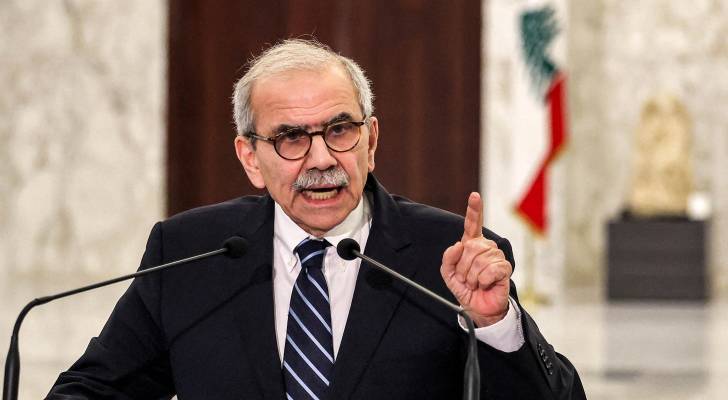Nawaf Salam, Lebanon’s Prime Minister
"No one asked Hezbollah to hand weapons to Israeli enemy , but rather to Lebanese Army", says Salam
Lebanon’s Prime Minister Nawaf Salam strongly rejected claims that there have been calls to hand over Hezbollah’s weapons to the Israeli Occupation, describing such allegations as false and misleading.
Responding to statements by Hezbollah chief Naim Qassem, Salam emphasized that no party in Lebanon is authorized to bear arms outside the framework of the Lebanese state. He described Qassem’s remarks as an “implicit threat of civil war” and said, “No one in Lebanon today wants a civil war, and any threat or insinuation to that effect is completely unacceptable.”
Read more: Hezbollah leader: We’ll never surrender weapons
Salam dismissed accusations that the government is implementing a US-‘Israeli’ project as unfounded. “Our decisions are purely Lebanese; they are taken within our government, and no one imposes them on us,” he said. He added that the Taif Agreement stipulates that the authority of the Lebanese state must extend throughout its territory through its own forces.
“No one asked for Hezbollah’s weapons to be handed over to the Israeli enemy, as some claim, but rather to the Lebanese Army, whose patriotism we refuse to question. Beware of irresponsible behavior that encourages discord!”
Hezbollah Secretary-General Naim Qassem reaffirmed Friday that the group will not surrender its weapons, warning it would fight a “Karbala-style” battle if necessary. His remarks came a day after meeting with Ali Larijani, Secretary of Iran’s Supreme National Security Council.
The statement follows the Lebanese government’s order for the army to draft a plan to place all weapons under state control by the end of August.
Qassem warned that Hezbollah would engage in such a battle “if necessary” to confront what he described as a project backed by Tel Aviv and Washington. “No matter the cost, we are confident we will win,” he said.
“This is our land and our homeland. We live together, or Lebanon will have no life,” Qassem added in a televised speech. “If you stand on the other side and attempt to overthrow us, Lebanon cannot be built without all its components. Either it remains with us together, or it’s farewell to the country.”
He criticized the government’s August 5 decision tasking the army with drafting a plan to disarm Hezbollah and other armed factions, calling it “a dangerous decision” that “strips the country of defensive weapons during aggression and makes it easier to kill the resistance.”
According to Qassem, the move violates Lebanon’s national pact of coexistence and risks plunging the country into a major crisis. “Do not drag the army into internal strife,” he said, praising the military’s record and noting that its leadership “does not want to take this path.”
He held the government “fully responsible” for any potential civil strife, internal explosion, or destruction in Lebanon, accusing it of abandoning its duty to defend the country and its citizens. “The government cannot strip the resistance of its legitimacy, nor does it have the right to do so,” he asserted.




